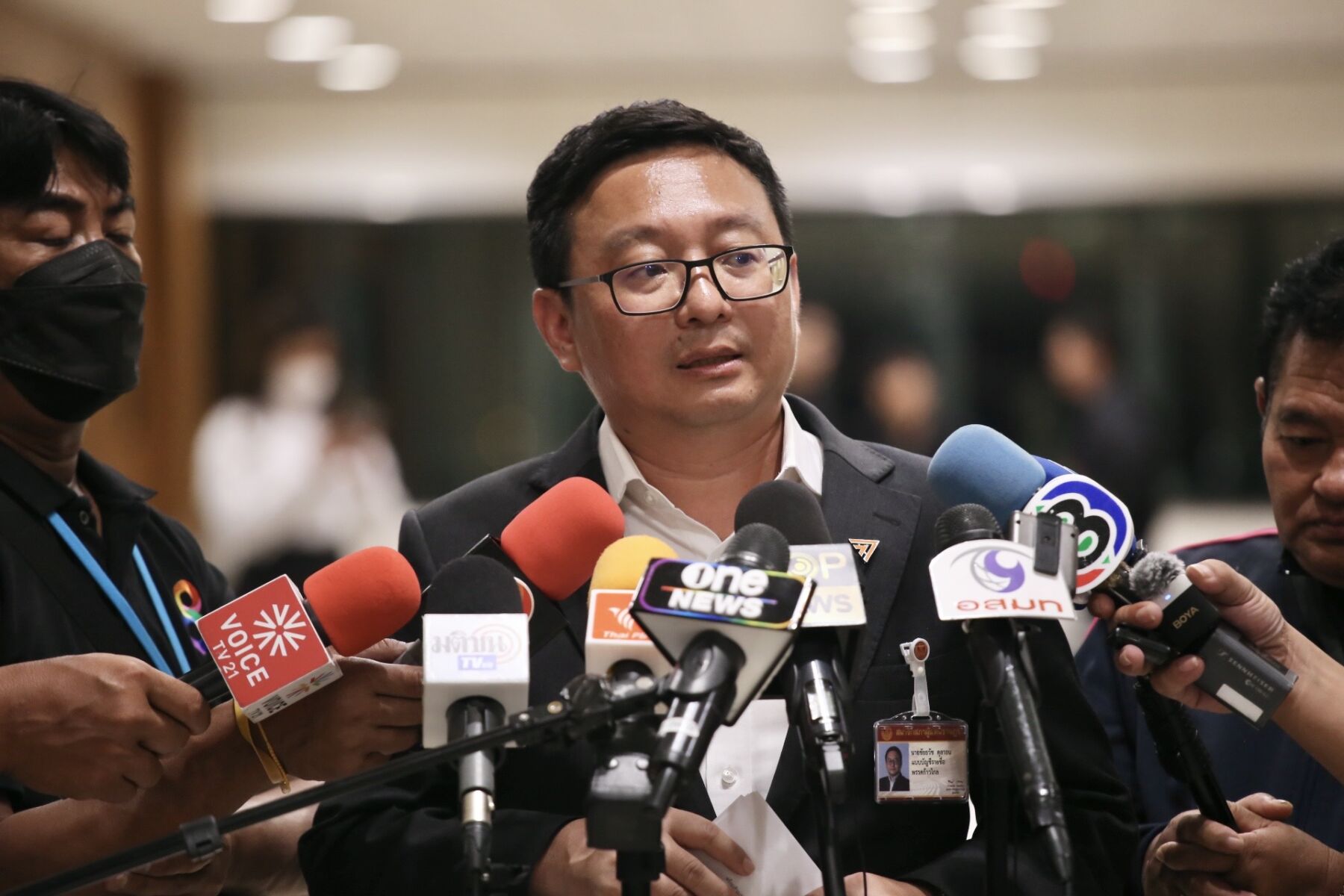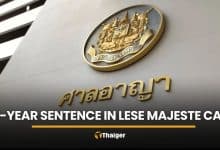Debate on lese majeste amnesty crucial, says former MFP leader

Granting amnesty to those convicted under Thailand’s lese majeste law has historical precedent and should not be a cause for political anxiety, according to a former leader of the now-disbanded Move Forward Party (MFP).
Speaking on the anniversary of the October 6, 1976 massacre at Thammasat University, Chaithawat Tulathon highlighted that students and members of the public connected to the tragic event faced various charges, including violations of the lese majeste law under Section 112 of the Criminal Code.
An amnesty law passed in 1978 granted pardon to lese majeste offenders, illustrating that such a measure is neither new nor out of the ordinary.
Now a member of the People’s Party (PP), the MFP’s successor, Chaithawat served on the House standing committee studying the amnesty law. He expressed eagerness to know when the committee’s report on the issue would be discussed in Parliament.
The discussion, initially scheduled for yesterday, October 6, was postponed due to opposition from several parties concerned about the sensitivity of including lese majeste offenders in an amnesty.
The committee’s study proposes three options: an unconditional amnesty for all Section 112 offenders, a conditional amnesty, or no amnesty at all.
United effort
Four bills, supported by the MFP, Democrat Party, Thai Teachers Party, United Thai Nation Party, and a civic group, are currently vying for admission to Parliament. These bills generally focus on absolving individuals involved in political cases but largely avoid addressing lese majeste offenders.
Chaithawat emphasised that it is the panel’s report, not an amnesty bill, that Parliament will deliberate. He believes that through debate, society can decide if an amnesty for lese majeste offenders is justified, and public reaction will be crucial in shaping any resulting legislation.
“We should debate and let the issue crystalise at the earliest possible opportunity.”
He also acknowledged the divided opinions of other parties on the matter. He noted that a conditional amnesty has garnered support from several parties.
PP Secretary-General Sarayut Jailak mentioned that no party has yet called a meeting to discuss the amnesty. After the Parliamentary review of the panel’s study, PP plans to forward its bill to the House.
Meanwhile, Chaowalit Wichayasut, deputy leader of the Thai Sang Thai Party, remarked that delaying the debate on the panel’s study was a move to temporarily ease conflicts. He suggested that the report should be revised to limit the amnesty to those accused of political offences or crimes motivated by political acts, excluding lese majeste offenders to avoid hindering the progress of an amnesty law.
The upcoming Parliamentary debate will be pivotal in determining the future of amnesty for individuals charged under Section 112 and could have significant implications for Thailand’s legal and political landscape, reported Bangkok Post.
Latest Thailand News
Follow The Thaiger on Google News:


























